It is possible for chickens to contract diseases from rats, as rats can carry a variety of diseases that can be transmitted to other animals.
For example, rats can carry bacterial infections such as salmonella and leptospirosis, as well as viral infections such as Hantavirus.
Chickens can also contract diseases from other sources, such as contaminated feed or water, or from other infected animals.
To reduce the risk of disease transmission, it is important to practice good hygiene and to keep chickens in a clean and well-maintained environment.
It is also a good idea to regularly check your chickens for signs of illness and to isolate any sick birds to prevent the spread of disease. If you are concerned about the health of your chickens, it is a good idea to consult a veterinarian with experience in avian medicine.
Do chickens eat rats?
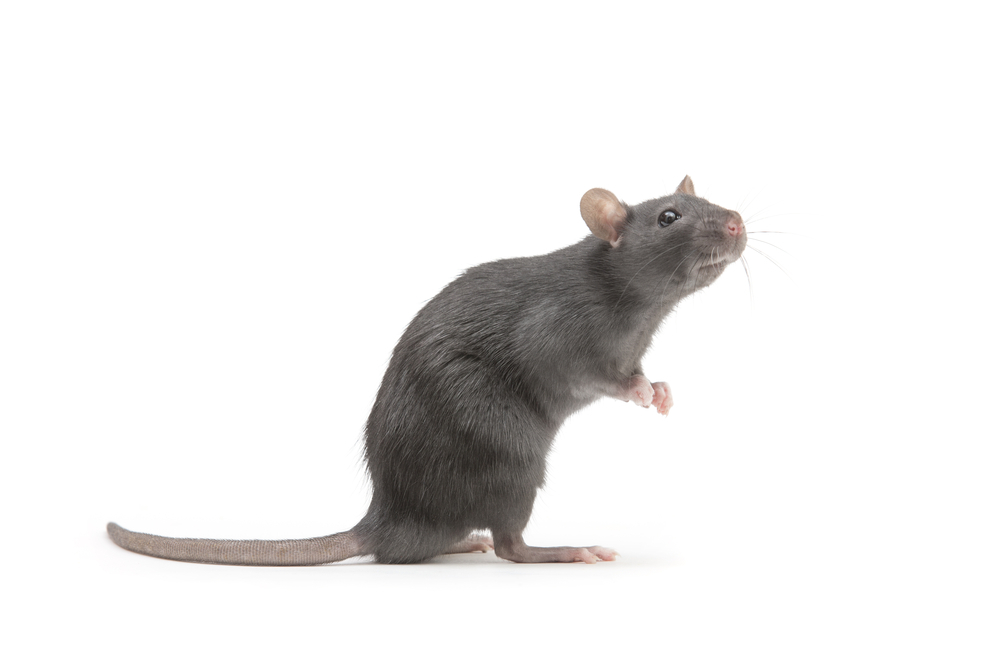
It is not uncommon for chickens to eat small rodents, including rats, if given the opportunity.
Chickens are omnivores, which means that they will eat a variety of plant and animal matter. In the wild, chickens will forage for seeds, insects, and other small animals as part of their diet.
In a domestic setting, chickens are often fed a balanced commercial feed that provides them with the nutrients they need. However, they may also supplement their diet with small insects, worms, and other small animals that they come across.
So, it is possible for chickens to eat rats, but it is not a normal part of their diet. It is generally more typical for chickens to eat insects and other small invertebrates.
Will rat poop hurt chickens?
Eating rat feces (poop) can potentially be harmful to chickens. Rat feces may contain bacteria and parasites that can cause illness in chickens, such as salmonella and E. coli.
Ingesting feces can also expose chickens to viruses and other infectious agents that can cause illness. Chickens have a natural tendency to peck at and explore their environment, and they may accidentally ingest rat feces while foraging.
How do you keep chickens safe from rats?
There are a few steps you can take to keep your chickens safe from rats:
- Keep the chicken coop and surrounding area clean and free of clutter to reduce the places where rats can hide and breed.
- Store feed and other potential attractants, such as kitchen scraps, in rat-proof containers to prevent rats from accessing them.
- Keep the coop well-maintained, with secure doors and windows to prevent rats from getting in.
- Use rat-proof chicken feeders and waterers to prevent rats from contaminating the feed or water.
- Consider using rodent control measures, such as traps or bait stations, to keep the rat population around your coop under control.
- Regularly inspect the coop and surrounding area for signs of rat activity, such as droppings or gnaw marks.
By following these steps, you can help to keep your chickens safe from rats and reduce the risk of illness and other problems. If you are having a particularly difficult time with rats, you may want to consider consulting with a pest control professional for additional assistance.
Can rat poison get into chicken eggs?
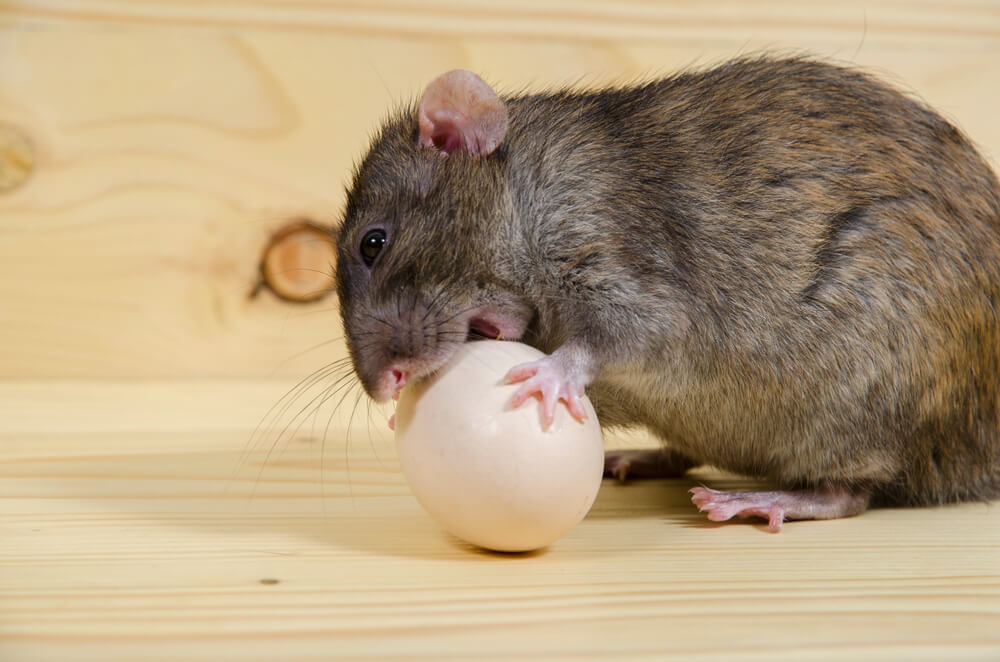
It is possible for rat poison to get into chicken eggs if the poison is present in the environment where the chickens live and lay their eggs. Rat poison can be ingested by chickens in a number of ways, including through contaminated feed or water, or by eating rats or other animals that have consumed the poison.
If the poison is present in the chickens’ environment, it is possible that it could be transferred to the eggs through the chickens’ digestive system.
To reduce the risk of rat poison contamination in chicken eggs, it is important to keep the poison out of reach of chickens and to follow the label instructions carefully when using rat poison. It is also a good idea to store the poison in a secure location, away from food and water sources, to prevent accidental ingestion.
If you are concerned about the safety of your eggs, you may want to consider using alternative methods of rodent control, such as traps or bait stations that do not pose a risk to chickens.
Does raising chickens attract rats?
Raising chickens can potentially attract rats, as rats are attracted to sources of food, water, and shelter. Chickens produce feed as a byproduct of their daily lives, and this feed, along with other potential attractants such as kitchen scraps and untreated grain, can attract rats if it is not stored properly.
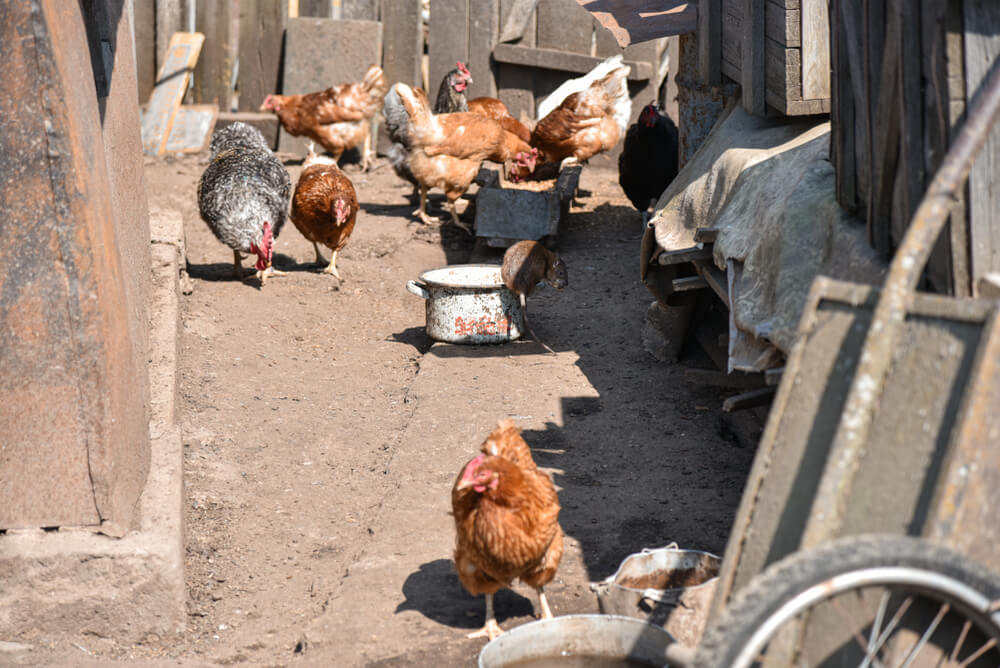
Additionally, the chicken coop and surrounding area can provide shelter for rats if it is not well-maintained and secured.
To reduce the risk of attracting rats when raising chickens, it is important to keep the chicken coop and surrounding area clean and free of clutter, and to store feed and other attractants in rat-proof containers.
It is also a good idea to keep the coop well-maintained and in good repair, with secure doors and windows to prevent rats from getting in. By following these steps, you can help to reduce the risk of attracting rats and other pests when raising chickens.
Are rats afraid of chickens?
Rats may be afraid of chickens to some extent, as chickens are larger and more dominant animals, and they may be perceived as a threat by rats. However, it is important to note that rats are adaptable and intelligent animals, and they may not necessarily be afraid of all chickens in all situations.
In general, it is not a good idea to rely solely on chickens to deter rats, as there is no guarantee that the rats will be afraid of the chickens.
While chickens may help to deter rats in some cases, it is important to take other steps to prevent rat infestations and protect your chickens from rats. This may include using rodent control measures, such as traps or bait stations, and practicing good hygiene and coop maintenance to reduce the risk of attracting rats.
Learn more “How to protect free range chickens from predators?“
Do rats bite chickens?
Yes, rats can bite chickens, and they may do so if they feel threatened or if they are trying to defend themselves. If a rat enters the coop and is confronted by a chicken, it may bite the chicken in self-defense.
Rats can cause significant damage to chickens, including biting and scratching, and can potentially transmit diseases to the chickens. To protect your chickens from rat attacks, it is important to take steps to secure the coop and prevent rats from gaining access.
Will rats eat chicken eggs?
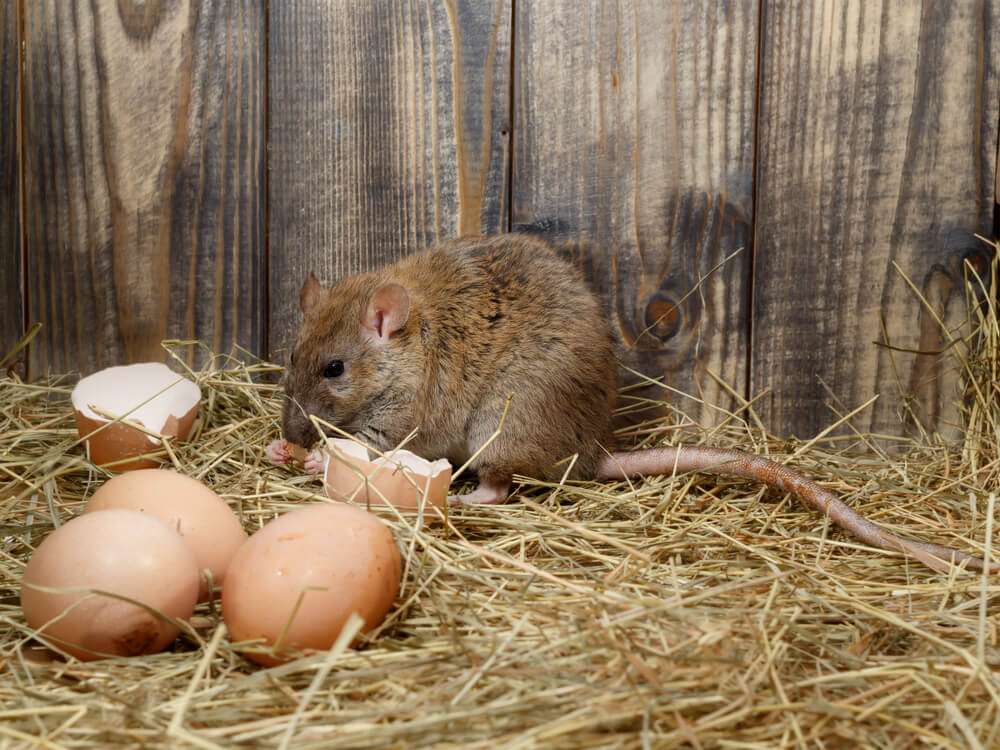
Yes, rats can and will eat chicken eggs if given the opportunity. Rats are omnivorous and will eat a wide variety of food, including eggs.
In a domestic setting, rats may be attracted to chicken coops and nests by the smell of eggs and may try to gain access to them.
Once inside the coop, rats can cause significant damage and may eat the eggs or damage the shells, making the eggs unfit for consumption.
To prevent rats from eating chicken eggs, it is important to take steps to secure the coop and protect the eggs from rat access.
Can rats kill baby chicks?
Yes, rats can potentially kill baby chicks if given the opportunity. Rats are omnivorous and will eat a variety of food, including eggs and small animals. In a domestic setting, rats may be attracted to chicken coops and nests by the smell of eggs and may try to gain access to them.
If a rat enters the coop and finds baby chicks, it may attack and kill the chicks, either by biting or scratching them.
To protect your baby chicks from rat attacks, it is important to take steps to secure the coop and prevent rats from gaining access.
Learn more “How to care for baby chicks“
Conclusion
In summary, rats can be a problem for chickens in a number of ways.
Rats can eat chicken eggs, kill and harm baby chicks, and transmit diseases to chickens through bites or contaminated feed and water.
To protect your chickens from rats, it is important to take steps to secure the coop and prevent rats from gaining access. This may include using rat-proof feeders and waterers, storing feed and other attractants in rat-proof containers, and regularly inspecting the coop for signs of rat activity.
It is also a good idea to practice good hygiene and coop maintenance to reduce the risk of attracting rats and other pests. If you are concerned about the health and safety of your chickens, it is a good idea to consult a veterinarian with experience in avian medicine.
References:
https://ferndalechickens.com/2015/02/24/myth-do-chickens-attract-rats/
https://cluckin.net/dealing-with-rats-when-you-have-chickens.html#mcetoc_1dd176h8k4
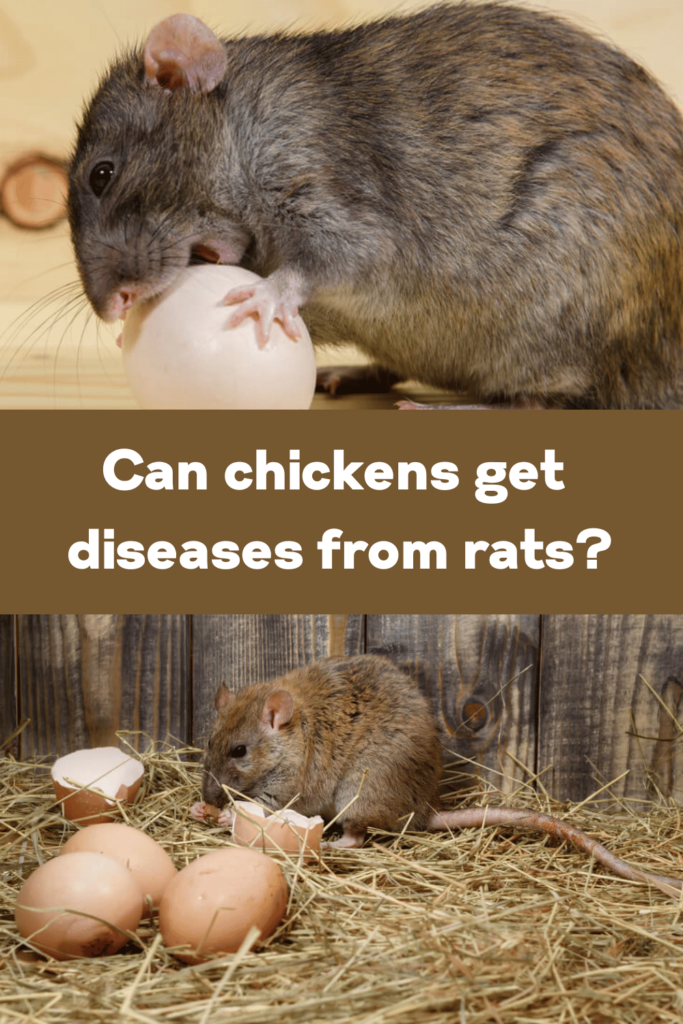
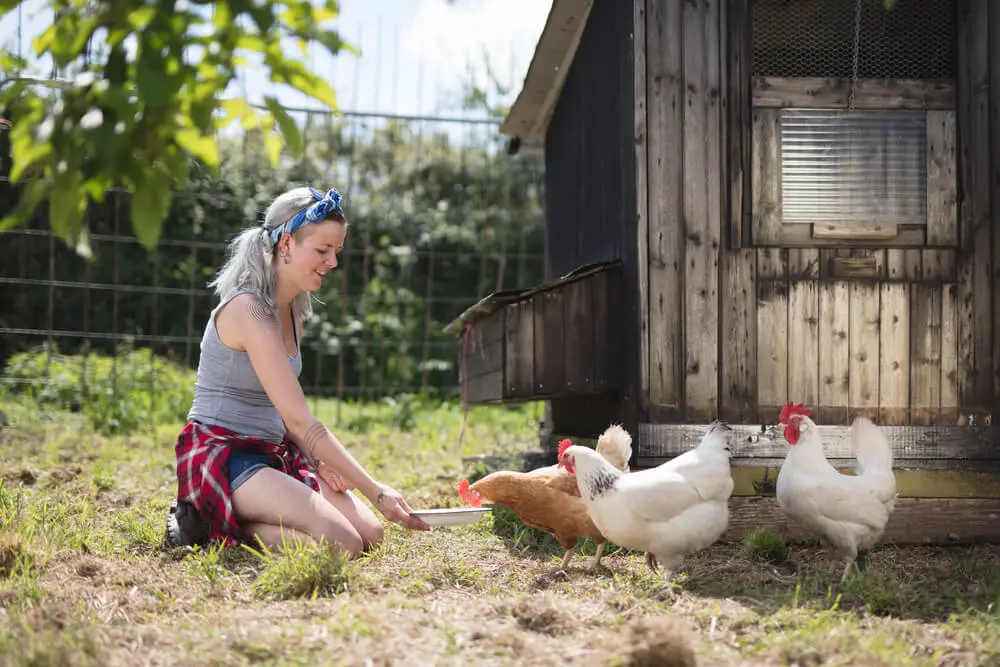
Shannon Stansberry has been engaged in the business of raising chickens for more than 12 years. In 2016, she accomplished the Agriculture & Natural Resources program at Mt. San Antonio College. At present, she tends to more than 80 chickens on her 4-hectare farm. Shannon regularly shares her insights and experience on how to raise healthy and contented chickens on the platform Typesofchickens.com